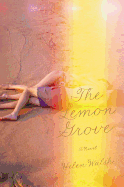Hachette Responds to Amazon's Statement
 Yesterday, Hachette Book Group issued a public response to Amazon's post on Kindle Forum on Tuesday night about the dispute between the two companies centering on Amazon's desire for better terms and Amazon's actions to limit the sale of Hachette titles:
Yesterday, Hachette Book Group issued a public response to Amazon's post on Kindle Forum on Tuesday night about the dispute between the two companies centering on Amazon's desire for better terms and Amazon's actions to limit the sale of Hachette titles:
"It is good to see Amazon acknowledge that its business decisions significantly affect authors' lives. For reasons of their own, Amazon has limited its customers' ability to buy more than 5,000 Hachette titles.
"Authors, with whom we at Hachette have been partners for nearly two centuries, engage in a complex and difficult mission to communicate with readers. In addition to royalties, they are concerned with audience, career, culture, education, art, entertainment, and connection. By preventing its customers from connecting with these authors' books, Amazon indicates that it considers books to be like any other consumer good. They are not.
"We will spare no effort to resume normal business relations with Amazon--which has been a great partner for years--but under terms that value appropriately for the years ahead the author's unique role in creating books, and the publisher's role in editing, marketing, and distributing them, at the same time that it recognizes Amazon's importance as a retailer and innovator. Once we have reached such an agreement, we will be happy to discuss with Amazon its ideas about compensating authors for the damage its demand for improved terms may have done them, and to pass along any payments it considers appropriate.
"In the meantime, we are extremely grateful for the spontaneous outpouring of support we have received both privately and publicly from authors and agents. We will continue to communicate with them promptly as this situation develops."









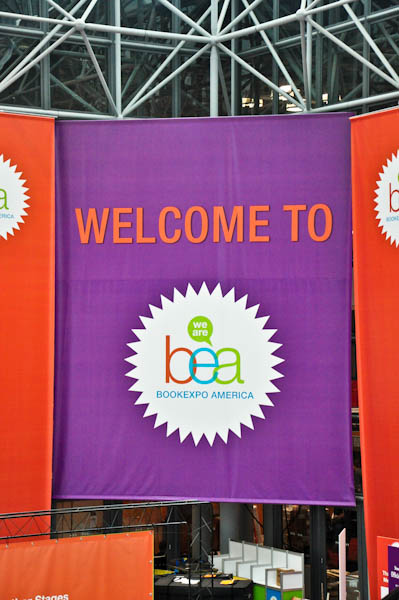
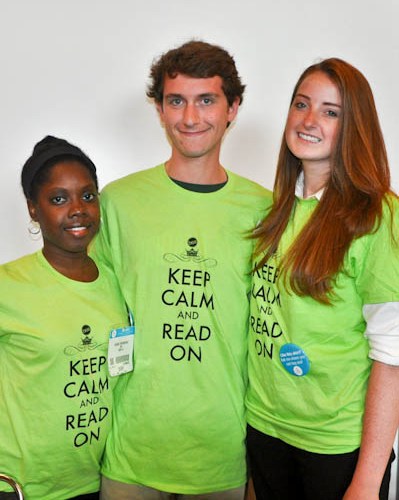 On Wednesday, there was plenty going on at the Javits Center. Along with a full day of educational programming (which we'll report on in the coming days), the IDPF Digital Book conference, the Audio Publishers Association conference and the BEA Bloggers conference also took place. And publishers were hard at work assembling their booths for the opening of the show floor tomorrow morning.
On Wednesday, there was plenty going on at the Javits Center. Along with a full day of educational programming (which we'll report on in the coming days), the IDPF Digital Book conference, the Audio Publishers Association conference and the BEA Bloggers conference also took place. And publishers were hard at work assembling their booths for the opening of the show floor tomorrow morning.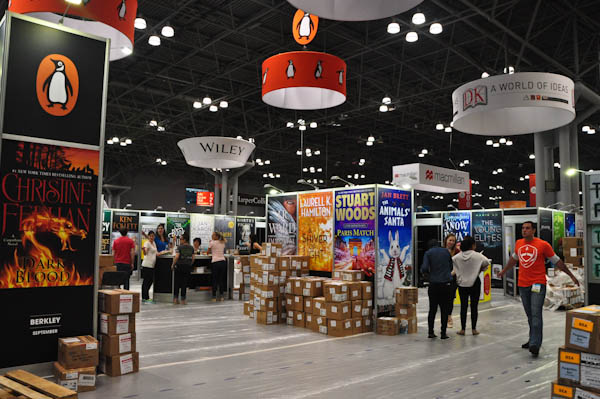
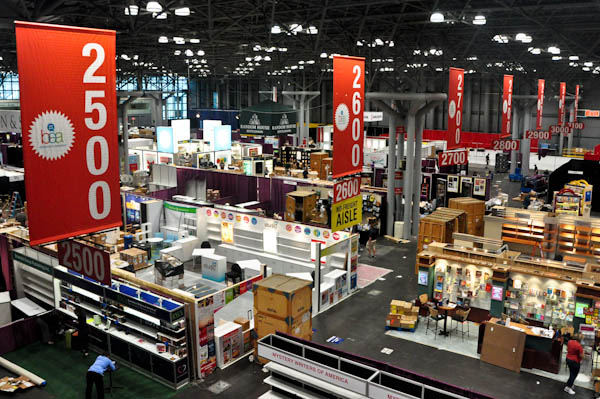
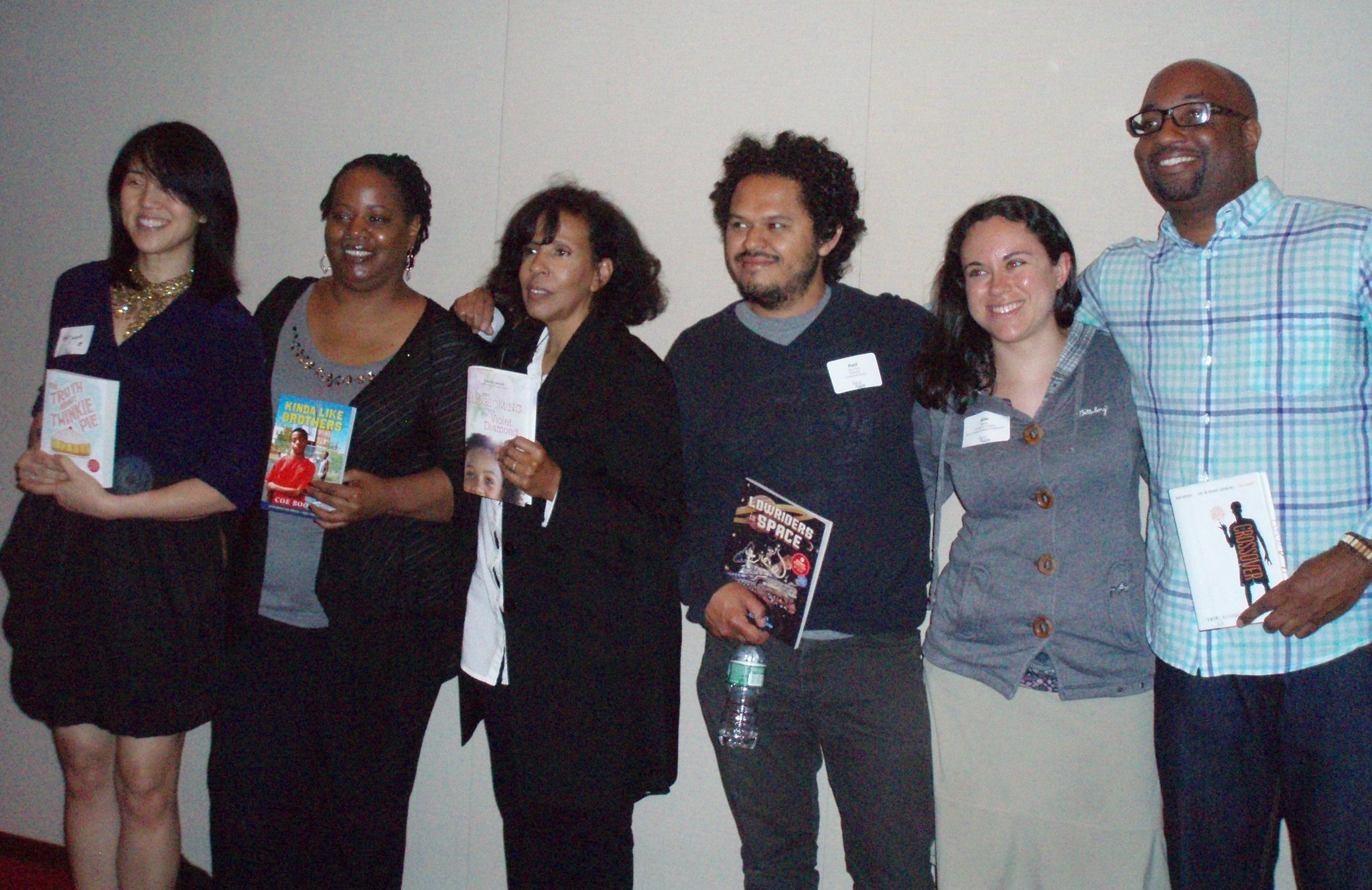
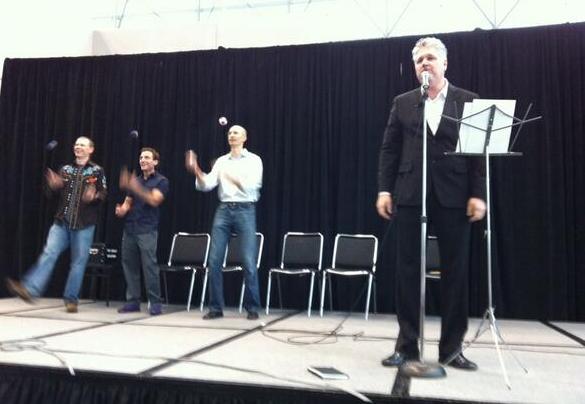

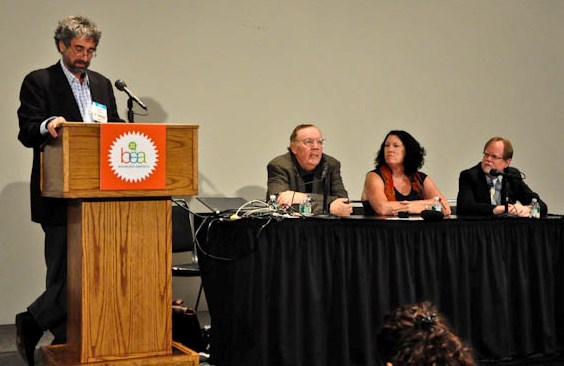
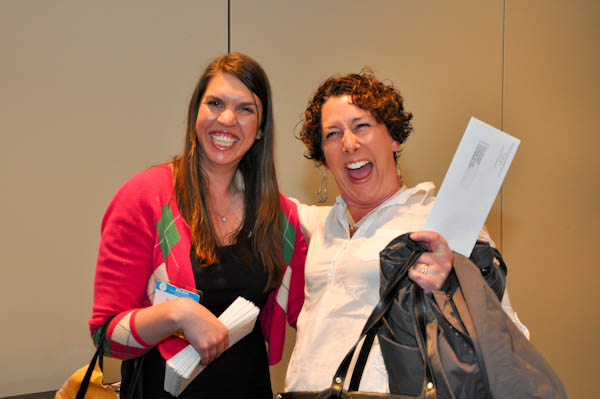

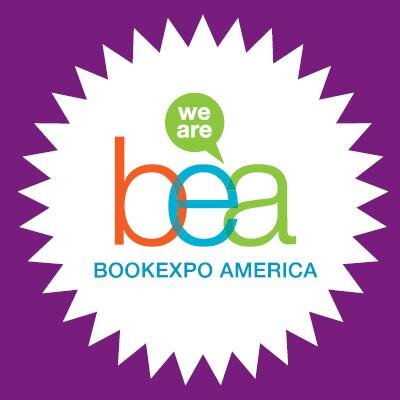 Moderator Robert Sindelar, managing partner of Third Place Books, Ravenna and Lake Forest Park, Wash., began Wednesday's buzz panel with two admissions: one of the things he likes best about BEA is this chance to hear from industry insiders about books that could "turn into something meaningful in my life,"and he really isn't a fan of the word "buzz." But as he prepped for this panel and started to think about how bees work together toward a single goal, and the intoxicating experience when he reads a book he just cannot stop talking about, he changed his mind. "I came to BEA intoxicated," he said, "and that's what we're here to do--to get you buzzed."
Moderator Robert Sindelar, managing partner of Third Place Books, Ravenna and Lake Forest Park, Wash., began Wednesday's buzz panel with two admissions: one of the things he likes best about BEA is this chance to hear from industry insiders about books that could "turn into something meaningful in my life,"and he really isn't a fan of the word "buzz." But as he prepped for this panel and started to think about how bees work together toward a single goal, and the intoxicating experience when he reads a book he just cannot stop talking about, he changed his mind. "I came to BEA intoxicated," he said, "and that's what we're here to do--to get you buzzed."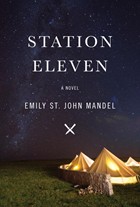 Jenny Jackson, senor editor at Knopf, started off the session by observing that the typical book discovery chain--editor excites sales reps who then excite booksellers--happened in reverse when it came to Station Eleven by Emily St. John Mandel (Sept.). Indie booksellers loved Mandel's previous work, published by Unbridled Books, and it was a Knopf rep in Milwaukee who first told Jackson that she had to read Mandel.
Jenny Jackson, senor editor at Knopf, started off the session by observing that the typical book discovery chain--editor excites sales reps who then excite booksellers--happened in reverse when it came to Station Eleven by Emily St. John Mandel (Sept.). Indie booksellers loved Mandel's previous work, published by Unbridled Books, and it was a Knopf rep in Milwaukee who first told Jackson that she had to read Mandel.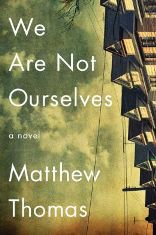 Marysue Rucci, editor-in-chief at Simon & Schuster, began her presentation of Matthew Thomas's debut, We Are Not Ourselves (Sept.), by reading bookseller comments that compared it to A Map of the World, One Hundred Years of Solitude and The Story of Edward Sawtelle. She shared how Thomas put two other novels in a drawer to concentrate 10 years on We Are Not Ourselves, while living in a one-bedroom apartment with his wife and twins. The book spans six decades of Eileen Leary's life--squirreling away money from her nurse's salary and dreaming of something bigger for herself and her family; it's a story "about the unwinding of the American middle class," said the editor. As a colleague noted, Rucci said, how a reader connects with this book will tell you something about their home. "I hope you will find your home in it and let me know where it is," she said.
Marysue Rucci, editor-in-chief at Simon & Schuster, began her presentation of Matthew Thomas's debut, We Are Not Ourselves (Sept.), by reading bookseller comments that compared it to A Map of the World, One Hundred Years of Solitude and The Story of Edward Sawtelle. She shared how Thomas put two other novels in a drawer to concentrate 10 years on We Are Not Ourselves, while living in a one-bedroom apartment with his wife and twins. The book spans six decades of Eileen Leary's life--squirreling away money from her nurse's salary and dreaming of something bigger for herself and her family; it's a story "about the unwinding of the American middle class," said the editor. As a colleague noted, Rucci said, how a reader connects with this book will tell you something about their home. "I hope you will find your home in it and let me know where it is," she said.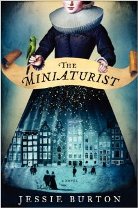 Ecco's Lee Boudreaux told attendees that The Miniaturist by Jessie Burton (Aug.) was bought in a "feverish preempt" in which all three imprints at HarperCollins competed, and has sold in 30 countries. It opens with one of her favorite scenes in literature: a young wife knocks on the door of the Amsterdam home of the older merchant she is to wed and is greeted by her severe soon-to-be sister-in-law. The husband buys the wife a cabinet house--a model of her home--and a mysterious miniaturist supplies her with furnishings for it--but do they depict her past or foretell her future? Boudreaux compared this debut to Elizabeth Gilbert's sprawling historical novel The Signature of All Things. "I think you are going to read the book in one sitting," said the editor.
Ecco's Lee Boudreaux told attendees that The Miniaturist by Jessie Burton (Aug.) was bought in a "feverish preempt" in which all three imprints at HarperCollins competed, and has sold in 30 countries. It opens with one of her favorite scenes in literature: a young wife knocks on the door of the Amsterdam home of the older merchant she is to wed and is greeted by her severe soon-to-be sister-in-law. The husband buys the wife a cabinet house--a model of her home--and a mysterious miniaturist supplies her with furnishings for it--but do they depict her past or foretell her future? Boudreaux compared this debut to Elizabeth Gilbert's sprawling historical novel The Signature of All Things. "I think you are going to read the book in one sitting," said the editor.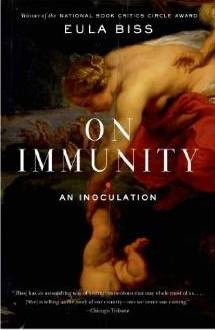 Having the name Shotts was perfect for working on the book he presented, quipped Graywolf's Jeff Shotts: On Immunity: An Inoculation by Eula Biss (coming in late September--just in time for flu season). Booksellers know Biss from her 2009 NBCC award-winner, Notes from No Man's Land. On Immunity, Shotts said, is rightfully earning the author comparisons to Joan Didion and Susan Sontag. With polio, measles, mumps and other once-thought-eradicated diseases reemerging, Shotts said, "the ramifications reach much further than the apparent subject at hand." Shotts said that Biss, who was expecting her first child as she embarked on this heavily researched work, with On Immunity emerges as "one of our true public intellectuals." And while it might sound off track, he claimed it is also Graywolf's "first vampire book" because the history of Bram Stoker's Dracula and the bizarre development of inoculation run through it. "The idea that pus from a sick cow can be scraped on a person to make them immune from disease is almost as unbelievable now as it was in 1796," he said.
Having the name Shotts was perfect for working on the book he presented, quipped Graywolf's Jeff Shotts: On Immunity: An Inoculation by Eula Biss (coming in late September--just in time for flu season). Booksellers know Biss from her 2009 NBCC award-winner, Notes from No Man's Land. On Immunity, Shotts said, is rightfully earning the author comparisons to Joan Didion and Susan Sontag. With polio, measles, mumps and other once-thought-eradicated diseases reemerging, Shotts said, "the ramifications reach much further than the apparent subject at hand." Shotts said that Biss, who was expecting her first child as she embarked on this heavily researched work, with On Immunity emerges as "one of our true public intellectuals." And while it might sound off track, he claimed it is also Graywolf's "first vampire book" because the history of Bram Stoker's Dracula and the bizarre development of inoculation run through it. "The idea that pus from a sick cow can be scraped on a person to make them immune from disease is almost as unbelievable now as it was in 1796," he said.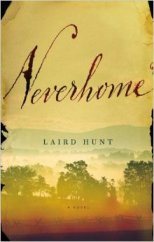 While so much of BEA buzz is about new voices, Joshua Kendall, editorial director at Mulholland Books, said his task in talking about Neverhome by Laird Hunt (who has won awards for some of his six previous novels) was to "make the case for the not-so-new guy." And as much as he liked Hunt's work before, Kendall said, nothing prepared him for reading the manuscript of Neverhome, which he recognized immediately as a "break-out book."
While so much of BEA buzz is about new voices, Joshua Kendall, editorial director at Mulholland Books, said his task in talking about Neverhome by Laird Hunt (who has won awards for some of his six previous novels) was to "make the case for the not-so-new guy." And as much as he liked Hunt's work before, Kendall said, nothing prepared him for reading the manuscript of Neverhome, which he recognized immediately as a "break-out book."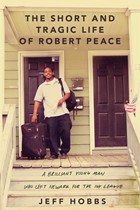 Wrapping up the buzz panel, Scribner's Colin Harrison talked about The Short and Tragic Life of Robert Peace by Jeff Hobbs (Sept.), written by the Yale roommate of a black man who grew up in Newark with a single mom and a dad serving time for a double murder. Peace returned home to teach in a public school but got sucked into marijuana dealing and was brutally murdered. Harrison said readers will come to feel they know Robert Peace, and will question of how much of his path was of his own making. "The effect is devastating," said Harrison, "and impossible to forget." Hobbs told his editor that he wrote the book after hearing about his friend being gunned down because he did not want it to become a simplistic story about race and socioeconomic factors, and he did not want it to be forgotten.
Wrapping up the buzz panel, Scribner's Colin Harrison talked about The Short and Tragic Life of Robert Peace by Jeff Hobbs (Sept.), written by the Yale roommate of a black man who grew up in Newark with a single mom and a dad serving time for a double murder. Peace returned home to teach in a public school but got sucked into marijuana dealing and was brutally murdered. Harrison said readers will come to feel they know Robert Peace, and will question of how much of his path was of his own making. "The effect is devastating," said Harrison, "and impossible to forget." Hobbs told his editor that he wrote the book after hearing about his friend being gunned down because he did not want it to become a simplistic story about race and socioeconomic factors, and he did not want it to be forgotten.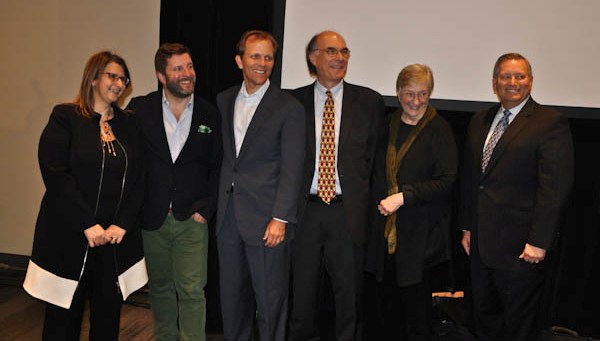
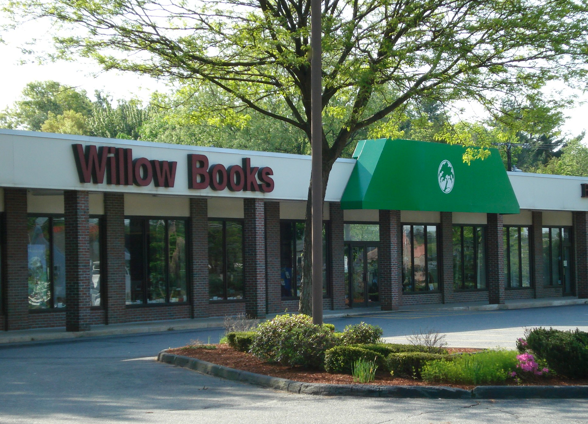 Willow Books and Café
Willow Books and Café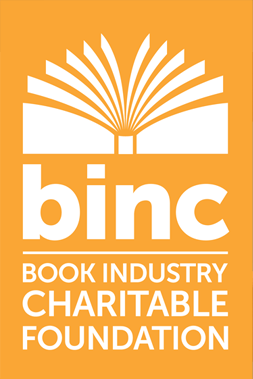 The Book Industry Charitable (Binc) Foundation
The Book Industry Charitable (Binc) Foundation Kirkus Reviews
Kirkus Reviews For the fiscal year ended March 29, revenue at Indigo Books & Music fell 1.3%, to C$868 million (about US$799 million), and the company had a net loss of $31 million ($28.5 million), compared to earnings of $4.3 million ($4 million) in the previous year.
For the fiscal year ended March 29, revenue at Indigo Books & Music fell 1.3%, to C$868 million (about US$799 million), and the company had a net loss of $31 million ($28.5 million), compared to earnings of $4.3 million ($4 million) in the previous year. Memoirist and poet
Memoirist and poet  Short had been a longtime customer of Sages Pages, the bookshop located at 300 Main St. that was forced to close in January after a
Short had been a longtime customer of Sages Pages, the bookshop located at 300 Main St. that was forced to close in January after a 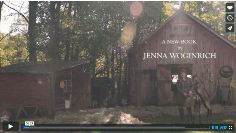 Cold Antler Farm: A Memoir of Growing Food and Celebrating Life on a Scrappy Six-Acre Homestead
Cold Antler Farm: A Memoir of Growing Food and Celebrating Life on a Scrappy Six-Acre Homestead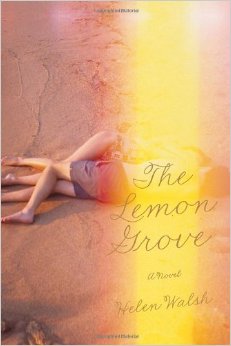 British author Helen Walsh's The Lemon Grove is a steamy (the adjective cannot be avoided) novel about age-inappropriate vacation lust that inverts the usual sexes. Instead of a dapper roué chasing a filly in a bikini, Walsh presents Jenn, a stacked, 40ish nursing-home manager, driven to infraction by a 17-year-old man-boy in blue swim trunks. Although current cultural mores tend to be more lenient toward Mrs. Robinson-type lechery, The Lemon Grove must still (ahem) surmount Jenn's flimsy scruples about adultery and finesse a far more verboten impediment to her holiday hots: Nathan-of-the-blue-trunks is the first love of 15-year-old Emma, Jenn's stepdaughter, inherited 14 years earlier when she married the devoted but preoccupied Greg, a minor-league professor of Romantic poetry.
British author Helen Walsh's The Lemon Grove is a steamy (the adjective cannot be avoided) novel about age-inappropriate vacation lust that inverts the usual sexes. Instead of a dapper roué chasing a filly in a bikini, Walsh presents Jenn, a stacked, 40ish nursing-home manager, driven to infraction by a 17-year-old man-boy in blue swim trunks. Although current cultural mores tend to be more lenient toward Mrs. Robinson-type lechery, The Lemon Grove must still (ahem) surmount Jenn's flimsy scruples about adultery and finesse a far more verboten impediment to her holiday hots: Nathan-of-the-blue-trunks is the first love of 15-year-old Emma, Jenn's stepdaughter, inherited 14 years earlier when she married the devoted but preoccupied Greg, a minor-league professor of Romantic poetry.